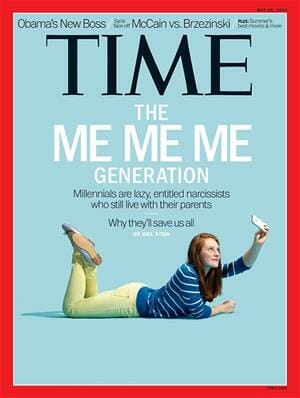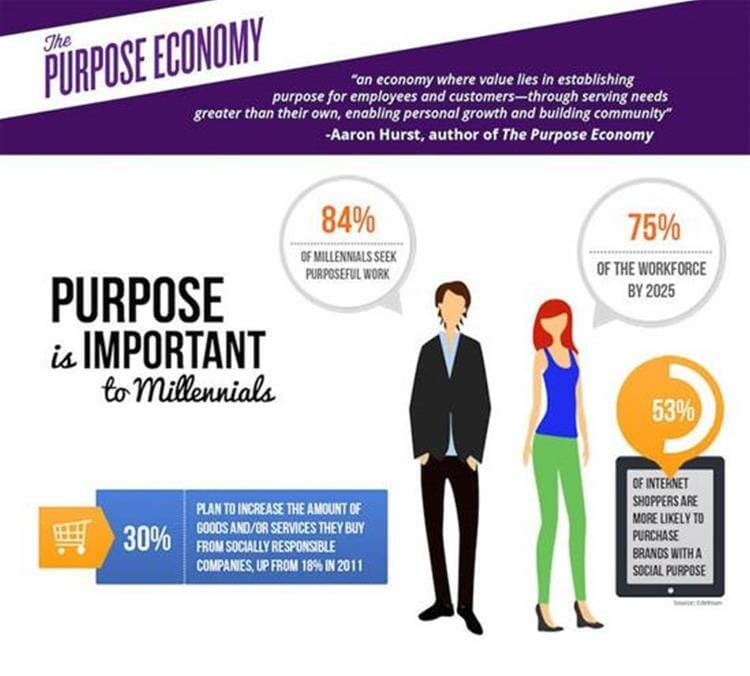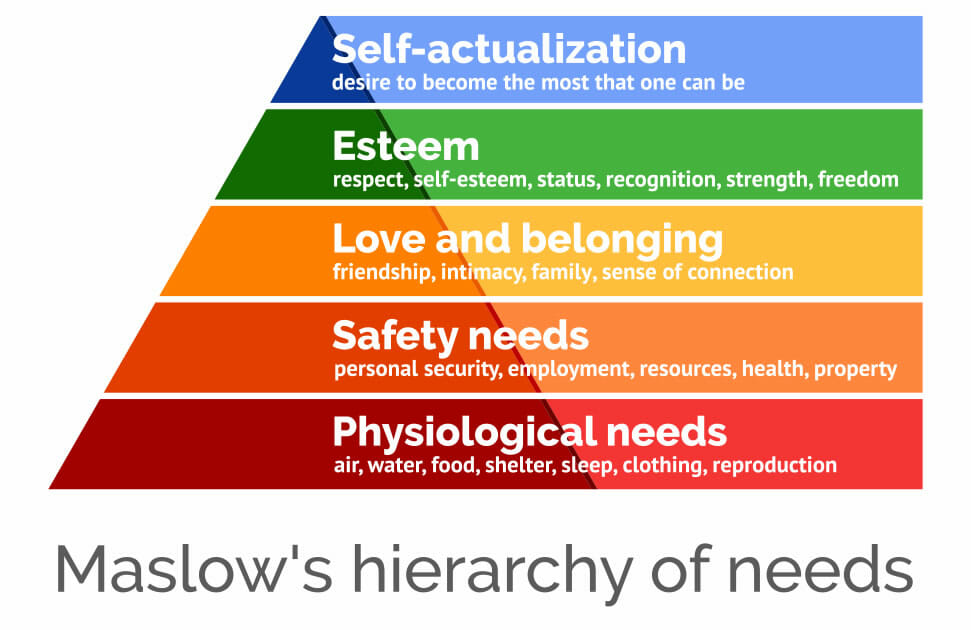
Why young people leave: A crisis of purpose for Millennials
Are you a business leader who wants to stand out and retain young high potentials? Have a purpose beyond money.
The crisis
Are you noticing that you can hold on to talent for less time than ever before? Do you consistently see young people join your business for 2-4 years, then leave for other opportunities?
Attrition is reaching an all-time high – Deloitte found that 65% of people are actively job testing, which makes sense considering that 87% of employees worldwide are disengaged at work (Gallup finding), and Millennials are the least engaged of all age groups. Millennials tend to stay only two years as compared to five years for a Gen Xer and seven years for a Boomer. Young people are less engaged than others and leaving corporations at an unprecedented rate.
In an effort to keep employees, especially young people, companies are providing pay increases, but it seems to be doing little to retain their talent, finds Fortune in an article called “As Wages Keep Rising, So Does Employee Turnover.” So my question is - why are young people leaving companies? And what can companies do to keep their young people?
I’ve been informally studying attrition lately, observing my peers, interviewing clients, and talking about it during our leadership programs. Many clients are saying some version of “The young people on my team are great but I can’t seem to keep them for long enough. As soon as they start to get really good at something, they leave.” I have come to believe that the cause of attrition with young people is much deeper than inadequate pay, a lack of career growth, or an absence of recognition. It is purpose, or namely, that our corporations are in a crisis of purpose and young people are taking notice.
In the book “It's Not What You Sell, It’s What You Stand For”, Roy M. Spence Jr. writes, “In a company without purpose people have no idea what they're really there to do. There may be a flurry of activity and abundance of busy-ness but it all seems frenetic and disorganized leading in no particular direction...contrast this with a company that has a great purpose - you can feel it when you walk in the door....you can see it in their leaders...these leaders have a knack...of harnessing the talents of their employees and you usually know what they're all about because they share their stories."
The corporate purpose is the “why” – the guiding light that provides meaning to an employee’s work. Without purpose, the company’s default “why” becomes making money. And to many Millennials, making money is just not very motivating. Karen Ross, CEO of Sharp Decisions said in a recent LA Times article, “[Millennials don’t] care about free food or free beer. They’re more interested in making a difference.”
The drive to make a difference is also socially reinforced. At a recent leadership program that I delivered, one young, high performing banker admitted to us, “I love my job but I get embarrassed talking about it with my friends who are teachers. They are making a difference in the lives of young children – I am just making money.”
 Millennials are pro-business but skeptical of its motivations. The Deloitte Millennial Survey found that 54% of Millennials agree that “Business has no ambition beyond wanting to make money” and 87% believe that “the success of a business should be measured in terms of more than just its financial performance.”
Millennials are pro-business but skeptical of its motivations. The Deloitte Millennial Survey found that 54% of Millennials agree that “Business has no ambition beyond wanting to make money” and 87% believe that “the success of a business should be measured in terms of more than just its financial performance.”
Are you a business leader who wants to stand out and retain young high potentials? Have a purpose beyond money.
Why purpose, why now
Most companies know that young people care about purpose but they don’t understand what that means or why it is important to young people. To the older generation, purpose and impact sounds fluffy and idealistic at best, indulgent and entitled at worst. Simon Sinek remarked in his “Millennials in the Workplace” interview:
“Millennials are wonderful, idealistic, hardworking smart kids who’ve just graduated school and are in their entry-level jobs and when asked “How’s it going?” they say “I think I’m going to quit.” And we’re like “Why?” and they say “I’m not making an impact.” To which we say - “You’ve only been there eight months…” It’s as if their standing at the foot of a mountain and they have this abstract concept called impact that they want to have on the world, which is the summit.”
His interview dismisses their idealism, condemns Millennial’s lack of patience, and blames their “flaws” on poor parenting. Millennial bashing is a favorite pastime of many media outlets. Consider the Time.com article calling the Millennials the “Me Me Me” generation, arguing that they are narcissistic, self-obsessed, entitled, developmentally stunted, and unwilling to work hard.
This angle of looking at Millennials is one interpretation; I, however, believe that Millennials have a different operating system than older generations. They hold different values about what is important in work and life. Rick Warren in his TED talk “A Life of Purpose” mentions human evolution. He says, “You can work for survival, for success, or for significance. People progress through this evolution over time or over generations.”
Millennials in the developed world have grown up with an unprecedented level of success around them. During their childhood, they were more financially comfortable than any generation before them (until the Great Recession). If we consider Maslow’s hierarchy of needs, they are relatively high up on the pyramid, which may be the reason they have the “luxury” of considering purpose and meaning in their lives.
With this increased comfort, some Millennials may get disillusioned with seeking only success. It may seem empty or hollow to them. Rick Warren in his TED talk continues, “I think inside at some point, we put our heads down on the pillow and we go, 'There's got to be more to life than this.' Get up in the morning, go to work, come home and watch TV, go to bed, get up in the morning, go to work, come home, watch TV, go to bed, go to parties on weekends… this is not living, it is existing.”
A personal story – throughout college and my early 20s, I worked hard for external recognition and success, trying for the promotion, the growth, and the accolades. At some point, I had every award I had worked for - Miss USC, Summa Cum Laude, etc. and yet I didn’t feel satisfied. I realized what was calling me was no longer success – it was significance. What was my work FOR? Why am I here? What is the impact I am trying to make on this earth? These questions became more important drivers to me than success (though I won't pass up success either!).
While Millennials’ parents worried about income and security, this generation cares deeply about impact. For many Millennials, money is a threshold not the scorecard; they want enough money to live independently, but the real aim is social impact. Sean Kelley of SnackNation says, “We are moving from the “me” to the “we”. Millennials are a civic generation, born during an unraveling, coming of age during a crisis. Their role in society is to re-create social institutions that are broken. That’s their number one purpose in society.”
The rapid rise of B-corps, impact investing, non-profits, and social innovation are example of this drive to re-create social institutions. This generation has a strong desire for the collective rather than the individual. The Brookings Institute says, “In the future, most Americans, taking their cue from Millennials, will demonstrate a greater desire to advance the welfare of the group and be less concerned with individual success.” Millennials want to belong to something bigger than themselves, they crave belonging to a bigger cause.
What this means for businesses
This drive towards the collective and social responsibility challenges businesses to think and behave in a radically different way than before. Dan Satterthwaite, head of HR at DreamWorks in a Time.com article said, “Maslow's hierarchy of needs makes it clear that a company can't just provide money anymore but also has to deliver self-actualization.” If you are left incredulous or wondering how to make “self-actualization” happen at work, you are not alone. What are realistic ways companies can help create a sense of purpose and retain their young people? Here are a few simple tips to get started:
- Lead with “why” – start every delegation conversation with the bigger “why”, and personalize it for all employees. You should be able to answer why this work is important for the individual, the team, and the organization. Even better if you can help the young person connect their work to social impact on the customer or the broader world. Gina Hayden, authoring of “Becoming a Conscious Leader” says, “This is the meaning generation, more than the ‘me’ generation. The clearer you are about the links between what they are doing and its value in the bigger picture, the more motivation you have to plug into.”
- Connect then create – Belonging and authentic connection are deeply important to Millennials. On my project teams, I use the motto “Connect then create” which means hearing how each person is doing personally before diving into the work. Even when we are busy and under a deadline, I try not to compromise the time to connect personally because that builds trust, and trust is the foundation needed to create anything significant. Ultimately people wanted to be treated as people, not as cogs in a corporate machine.
- Recognize growth, not success – For a generation raised on constant praise, it can be paralyzing to not receive that constant praise at work. However, to facilitate a growth mindset, actively notice and reward moments of growth rather than outright success. Has your report improved on a certain skill or aspect of their job? Point out exactly what they have gotten better at. Have their emails gotten clearer or their sales reports more accurate? Noticing and naming tiny improvements helps young people feel seen, gives them motivation to keep growing, and shows them what’s next.
- Be vulnerable yourself – Millennials want a manager they can relate to. Brene Brown in “Daring Greatly” says “The shift from controlling to engaging with vulnerability creates trust.” How do you be vulnerable and still professional? Share stories of when you’ve made a mistake at work, admit when you don’t know something, or open up about what you want to do next. These human moments will help your young people feel connected to you and encourage them to open up too.
In summary, these simple moves can make a big difference to your young people. Broadly, you want to change the work from meaningless isolated tasks to work that matters to the broader team, organization, and the world, while helping them to connect with you and each other.
This article originally appeared on BTS.com:
The Crisis of Purpose: Why Your Young People Are Leaving
Photo at top:
Greg Rakozy
Infographic source: http://www.snacknation.com/blog/managing-millennials/
 BTS, an Advantage Performance Group thought leader partner, is a global professional services firm headquartered in Stockholm, Sweden, with some 500 professionals in 33 offices located on six continents. We focus on the people side of strategy working with leaders at all levels to help them make better decisions, convert those decisions to actions and deliver results.
BTS, an Advantage Performance Group thought leader partner, is a global professional services firm headquartered in Stockholm, Sweden, with some 500 professionals in 33 offices located on six continents. We focus on the people side of strategy working with leaders at all levels to help them make better decisions, convert those decisions to actions and deliver results.
If you want to know more about how to help your business appeal to the younger generation through purpose, reach out.
- 5 skills leaders will need to be successful in the future - August 24, 2017
- Why young people leave: A crisis of purpose for Millennials - July 26, 2017


